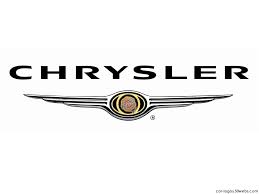PT Cruiser L4-2.4L (2008)

NOTE: Remember that everything put into or on the trailer adds to the load on your vehicle. Also, additional factory-installed options, or
dealer-installed options, must be considered as part of the total load on your vehicle. Refer to the Tire and Loading Information placard in the
Tire Safety Information Section for the maximum combined weight of occupants and cargo for your vehicle.
Towing Requirements
To promote proper break-in of your new vehicle drivetrain components the following guidelines are recommended:
CAUTION:
-
Avoid towing a trailer for the first 500 mi (805 km) of vehicle operation. Doing so may damage your vehicle.
-
During the first 500 mi (805 km) of trailer towing, limit your speed to 50 mph (80 km/h).
Perform the maintenance listed. When towing a trailer, never exceed the GAWR, or GCWR, ratings.
WARNING:
-
Improper towing can lead to an injury accident.
-
Make certain that the load is secured in the trailer and will not shift during travel. When trailering cargo that is not fully secured,
dynamic load shifts can occur that may be difficult for the driver to control. You could lose control of your vehicle and have an accident.
-
When hauling cargo or towing a trailer, do not overload your vehicle or trailer. Overloading can cause a loss of control, poor performance or
damage to brakes, axle, engine, transmission, steering, suspension, chassis structure or tires.
-
Safety chains must always be used between your vehicle and trailer. Always connect the chains to the frame or hook retainers of the vehicle hitch.
Cross the chains under the trailer tongue and allow enough slack for turning corners.
-
Vehicles with trailers should not be parked on a grade. When parking, apply the parking brake on the tow vehicle. Put the tow vehicle automatic
transmission in PARK. Always, block or "chock" the trailer wheels.
-
GCWR must not be exceeded.
-
Total weight must be distributed between the tow vehicle and the trailer such that the following four ratings are not exceeded:
-
GVWR
-
GTW
-
GAWR
-
Tongue weight rating for the trailer hitch utilized (This requirement may limit the ability to always achieve the 10% to 15% range of tongue weight
as a percentage of total trailer weight).
Towing Requirements - Tires
-
Do not attempt to tow a trailer while using a compact spare tire.
-
Proper tire inflation pressures are essential to the safe and satisfactory operation of your vehicle. Refer to the Tires-General Information section on
Tire Pressures for proper tire inflation procedures.
-
Also, check the trailer tires for proper tire inflation pressures before trailer usage.
-
Check for signs of tire wear or visible tire damage before towing a trailer. Refer to the See: Maintenance/Wheels and Tires/Tires/Description and
Operation section on Tread Wear Indicators for the proper inspection procedure.
-
When replacing tires refer to See: Maintenance/Wheels and Tires/Tires/Description and Operation section on Replacement Tires for proper tire
replacement procedures. Replacing tires with a higher load carrying capacity will not increase the vehicle's GVWR and GAWR limits.
Towing Requirements - Trailer Brakes
-
Do not interconnect the hydraulic brake system or vacuum system of your vehicle with that of the trailer. This could cause inadequate braking and
possible personal injury.
-
An electronically actuated trailer brake controller is required when towing a trailer with electronically actuated brakes. When towing a trailer
equipped with a hydraulic surge actuated brake system, an electronic brake controller is not required.
-
Trailer brakes are recommended for trailers over 1,000 lbs (454 kg) and required for trailers in excess of 2,000 lbs (907 kg).
CAUTION:
If the trailer weighs more than 1,000 lbs (454 kg) loaded, it should have its own brakes and they should be of adequate capacity. Failure to do
this could lead to accelerated brake lining wear, higher brake pedal effort, and longer stopping distances.
WARNING:
Do not connect trailer brakes to your vehicle's hydraulic brake lines. It can overload your brake system and cause it to fail. You might not have
brakes when you need them and could have an accident.
Towing any trailer will increase your stopping distance. When towing you should allow for additional space between your vehicle and the
vehicle in front of you. Failure to do so could result in an accident.
Towing Requirements - Trailer Lights & Wiring
